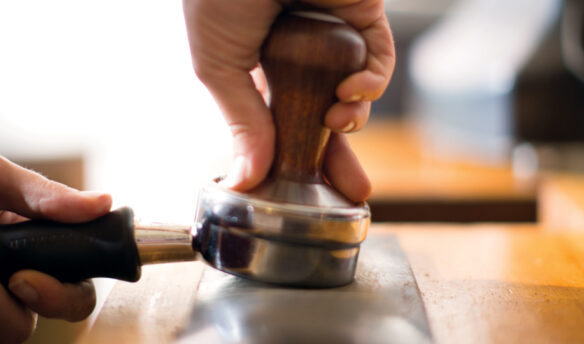[H]ow did we do?” she asked.
“Extraordinarily well. We have a 92 percent customer satisfaction rating, and our sales were the highest they’ve ever been. Our year-over-year numbers are outstanding,” he replied, beaming.
“What about that 8 percent?”
“The dissatisfied people? Oh, uh, they were mostly complaining about little stuff, things that we can’t really help. People are people, you know?”
“We can help, and we will. This year, we’re shooting for 100 percent.”
I overheard this exchange at one of my first jobs in high school. My manager was so proud—he had beaten his previous year’s sales numbers while boasting an impressively high customer satisfaction rate for being in fast food.
Our district manager was happy for him, but also dissatisfied enough to push him to shoot for more, to challenge himself to be even better. She wanted him to have that same sense of dissatisfaction; the feeling that what happened was good, but it could be amazing.
And that’s what I want to encourage in you: a healthy dissatisfaction.
Let’s start with a simple, small example. Maybe you pour latte art well. That’s great, but you can do it better. I can pour a reasonably consistent rosetta if conditions are perfect—the milk, the pitcher, the cup, and the espresso have to align perfectly. If they do, I’m taking you straight to Pretty Decent Rosetta Town. The results of honing my skill to that level are evident: I never win latte art throwdowns and I’m never asked to show off for our customers. My greatest achievement occurs when a customer who doesn’t know any better gushes about how the latte I served is “too beautiful to drink!”
Do you know why? Because I became content with my skill level too soon. I poured a good rosetta one day, photographed it and put it on Instagram, then stopped trying to get better. That last part leads so many promising coffee professionals into complacency and feeling stalled. We set the bar too low, accomplish something that’s alright, and then don’t reset our goals.
But what if we question our goals, refusing to accept a satisfactory performance as the best possible outcome? Last year, I started a much more aggressive quality control program for Portland Roasting. I wanted better evidence that our coffee was consistently excellent, and I wanted our roasting team to feel like they were being held accountable for every roast that passed through their machines.
I became content with my skill level too soon. I poured a good rosetta one day, photographed it and put it on Instagram, then stopped trying to get better.
As a result, a team of people tastes every single roast of every single coffee, every day. Within a month of starting this program, the number of complaints from customers plummeted. They weren’t high before, mind you, but they now represent a tiny percentage of our customer base, and happen with extreme infrequency.
When complaints do come in, the easy response is, “Well, that’s just like, your opinion, man.” I know the coffee we’re shipping out or delivering tastes great. I’ve tasted it. But I also have a healthy dissatisfaction with 98 percent satisfaction, and I want literally every customer to be happy with their experience with my company.
So I send them a new bag of coffee, on me. I want them to be happy, and I’m not satisfied until I’ve given my all to that cause.
How does this translate to life behind the espresso bar? How do you challenge yourself to improve every day, when you’d like to believe that you’re already doing a good job? To be honest, it’s difficult. It’s difficult if you work in an extraordinarily busy café (how can I find a spare minute to improve?) and it’s difficult if you work in an extraordinarily slow café (how can I improve my customer service with so few customers?). But with intentionality and attentiveness, it’s doable. I promise!
Try this: challenge yourself to make one customer’s day absolutely amazing. What kind of experience can you give them that goes beyond their expectations and makes them feel incredibly special? Do that. Then do it again the next day, only this time, challenge yourself to truly connect with a customer whose experience has been less than stellar. Turn it around for them!
This is where it gets difficult. You have to keep doing that, every day, and allow yourself to be dissatisfied with not being able to do that for everyone—to the point where you keep improving and improving until you get there.
Then, apply that same healthy dissatisfaction to something else. Maybe it’s your latte art. Maybe it’s your efficiency when you’re on bar with someone else, or your cash handling. There are so many different areas in a café where we are complimented or lauded when we’ve done “good enough,” and yet there is so much more we can do.
If you find yourself comfortable with complacency, consider cultivating a healthy dissatisfaction in an area of your job. You might be surprised where the drive to improve and grow takes you.
—Nathanael May is director of coffee and green coffee buyer for Portland Roasting Coffee.
















